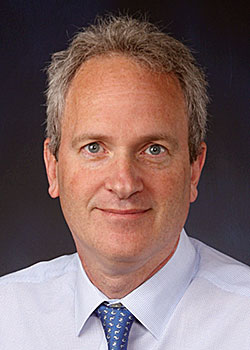Admin has limited influence on homework
January 25, 2019
Although the administration doesn’t regulate or coordinate the homework teachers assign, the administration is working on creating focus groups for students to talk about health and wellness at Lab, including homework.
Individual teachers, sometimes with their department, determine homework. There’s no rule requiring teachers to give homework, but according to Principal Stephanie Weber, there is also no regulation on how much, how often or coordination with other classes.
According to Faculty Association President James Catlett, a chemistry teacher, it is difficult to put a limit on or identify an amount of time students should spend on homework. Instead of talking with administration, teachers talk within their department to determine the homework given in classes.
“We rely on the professional judgment of teachers and trust their judgment in what’s appropriate,” Mr. Catlett said. The question I always encourage teachers to ask is, given the educational objectives and learning outcomes for your class, what work do you have students doing in class? — Stephanie Weber, Principal
In addition, according to Ms. Weber, it’s difficult for the administration to oversee homework. She said it is up to expertise of the department to determine what homework will best help students understand and practice new material. She also said a time regulation on homework isn’t inclusive of every student’s abilities.
“The question I always encourage teachers to ask is, given the educational objectives and learning outcomes for your class, what work do you have students doing in class?” Ms. Weber said. “And then what work are you asking them to do on their own outside of class and why?”
History teacher Christopher Janus said he tries to be sensitive to his students’ needs and their experiences with the homework.
“My objective is also to listen to the class,” he said. “There’s a difference between complaining and ‘it’s too much,’ and if I hear from the class that it’s too much, I reduce it. I tend to deal with it more on a class-to-class basis.”
After seeing the results of last spring’s health and wellness survey, the administration is discussing homework in the curriculum committee, which consists of department chairs and high school administration. Ms. Weber said that they are considering changes such as incorporating student course evaluations earlier in the term, rather than at the culmination of a course.
She is also planning to create a working group of students, faculty and parents, as well as student-only groups to be led by Wellness and Deputy Title IX Coordinator Betsy Noel to further discuss health and wellness concerns, including student experiences with homework load.
When concerns about homework are brought to the administration, Ms. Weber encourages students to share the concerns directly with the teacher.

“I will also share those concerns with the teacher so that they have the information and from that can respond to the needs of student,” Ms. Weber said.
Ms. Weber also suggests teachers should regularly check in with students and ask for feedback about the course and workload. This would allow a teacher to learn what parts of the homework were helpful and to make sure the homework matched the intentions and objectives of the assignment.
Director Charlie Abelmann cited other resources students could use if they have concerns about the workload. They could talk with a counselor, an adviser, the dean of students or assistant principal. He also said they could have parents speak on their behalf.
“I think kids need to be able to be advocates for themselves and where they are doing an amount of homework that seems excessive that’s interfering with a healthy lifestyle,” Dr. Abelmann said.
“If that is the situation students need to speak up, and by speaking up, that also creates greater urgency for being able to think about change and have change be necessary.”


















Linda Weide • Jan 25, 2019 at 4:25 pm
I am wondering if anyone is studying the homework situation in a more scientific manner. In a way that would gather evidence based data. For example, when my daughter was in sixth grade she used a timer and timed how long she spent doing each subject each day. The timer would be paused when she went to the bathroom or took some sort of break. In that way we only used time actually spent on the assignments. My husband would then analyze the data by subject, or by time spent on certain types of assignments, ie.. reading, writing papers, working on a group project, etc…. We also looked at how much time was spent on each day of the week, and there would be a weekly aggregate and averages. Then, when we filled out the homework survey we really knew what we were saying because we had gathered 6 weeks of data by then.
Otherwise, everything is just people’s opinion. It would be useful data to see the range of the time people are spending. It might even be interesting to convince some other schools to do this same thing and compare data. This is what I learned was a way to set up changes when I studied school psychology. The criteria for what is time spent on homework would have to be clarified. It would not include time spent texting, or talking to other people, but only actual time doing work. Also, one should look at start and end times for homework. We know people who are doing homework really late, after a long day are probably going to be less effective and take longer than someone who is doing homework during study hall in the morning, and is fresher. I would also be interested in the studying habits of students in general. Who is doing homework before school? After school? During school? Whose parents are typing their papers? Whose are not? Since we are a Laboratory School this is an approach we should take to examining what is going on with homework.